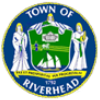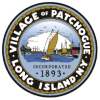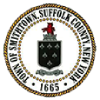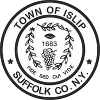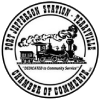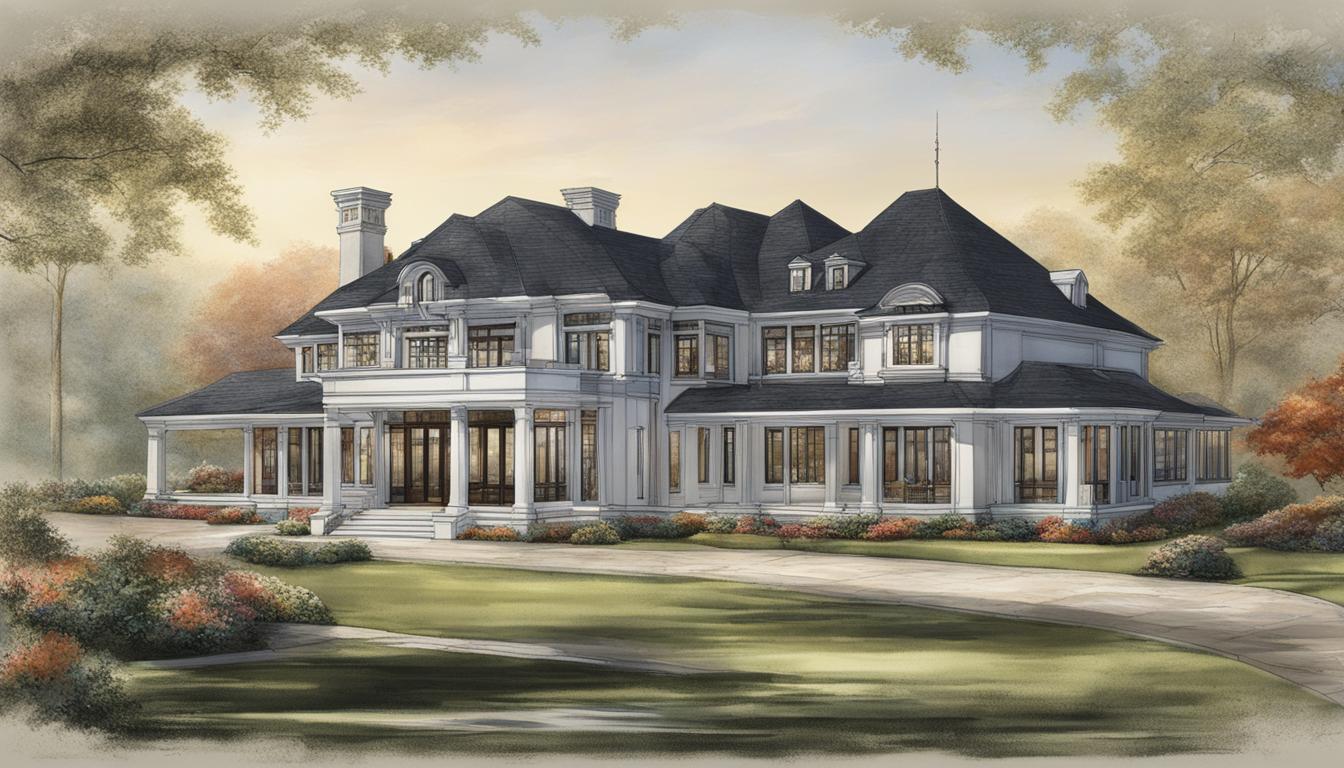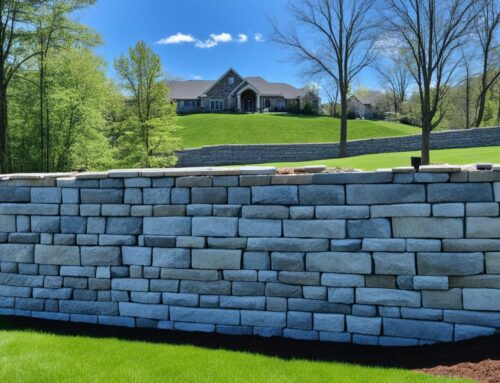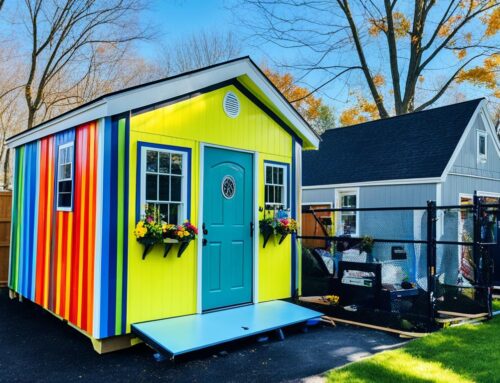Looking to start a construction project in Floral Park? You’ll need building permits, variances, radius maps, and certificates of occupancy to ensure your project meets all the necessary requirements. Fortunately, Floral Park offers a comprehensive system for obtaining these essential documents. Led by Superintendent Renee Marcus, the Building Department is responsible for reviewing plans, issuing permits, and conducting inspections to ensure compliance with codes and regulations.
Working closely with the Architectural and Preliminary Site Plan Review Board (ARB) and the Zoning Board of Appeals (ZBA), the Building Department ensures that your construction project aligns with the community’s overall vision. By obtaining the required permits and inspections, you can protect yourself from inferior workmanship, facilitate financing, and ensure compliance with regulations.
Key Takeaways:
- Floral Park offers a comprehensive system for obtaining building permits, variances, radius maps, and certificates of occupancy.
- The Building Department, headed by Superintendent Renee Marcus, reviews plans, issues permits, and conducts inspections.
- Working closely with the ARB and ZBA, the department ensures compliance with codes and regulations.
- Obtaining the necessary permits protects against inferior workmanship and facilitates financing.
- By following the proper procedures, property owners can proceed with their construction projects in Floral Park confidently.
Building Permit Applications and Forms
When starting a construction project in Floral Park, it is essential to understand the building permit application process and the necessary forms. The Building Department provides a variety of permit applications and forms for different types of construction projects. These documents streamline the application process and ensure that all required information is provided.
Building permit applications are available for various project types, including residential, commercial, and industrial construction. Each application form collects specific information about the project, such as the scope of work, project location, and property owner’s details. By submitting the appropriate application along with the required fees, property owners can initiate the building permit process and move forward with their construction projects.
Building Permit Application Types
Here are some common types of building permit applications available:
- Residential Building Permit Application
- Commercial Building Permit Application
- Demolition Permit Application
- Plumbing Permit Application
- Electrical Permit Application
- Pool and Spa Permit Application
Each application form is designed to collect the necessary information for the specific type of construction project. It is crucial to fill out the application accurately and provide any required documentation to avoid delays in the permit process.
| Required Documentation | Application Forms |
|---|---|
| Construction drawings drawn to scale | Building Permit Application |
| Recent property surveys | Demolition Permit Application |
| Truss type construction notice | Plumbing Permit Application |
| Energy code compliance certification | Electrical Permit Application |
| Payment of building permit fees | Pool and Spa Permit Application |
By submitting the required documentation and completing the appropriate application forms, property owners can navigate the building permit process effectively and ensure compliance with regulations.
Board Approvals and Variances
When undertaking construction projects in Floral Park, it’s important to be aware that certain projects may require approval from various boards. These boards include the Architectural Review Board (ARB), the Zoning Board of Appeals (ZBA), and the Board of Trustees. Each board serves a specific purpose in ensuring that proposed projects comply with building codes, zoning regulations, and the overall vision of the community.
The Architectural Review Board (ARB) plays a crucial role in reviewing projects for aesthetic purposes before issuing a building permit. Their focus is on maintaining the character and integrity of Floral Park, ensuring that new construction and renovations align with the architectural standards of the community.
The Zoning Board of Appeals (ZBA) handles applications for variances from the Zoning Code. A variance application may be required if a project does not fully comply with the existing zoning regulations. The ZBA carefully evaluates each application and grants variances when appropriate, taking into consideration the impact on the surrounding area.
The Board of Trustees reviews special use applications, which are typically required for projects that go beyond the standard zoning requirements. These applications are necessary when a proposed use does not fit within the existing zoning designations. The Board of Trustees carefully considers the impact of the proposed use on the community’s overall well-being and makes decisions accordingly.
Obtaining the necessary approvals and variances from these boards is crucial for proceeding with construction in Floral Park. This ensures that projects comply with regulations and that the vision of the community is upheld.
Department of Buildings and Code Enforcement
The Department of Buildings in Floral Park plays a critical role in ensuring compliance with building codes and regulations. Led by the Superintendent of Buildings, who also serves as the Code Enforcement Officer, the department administers and enforces the New York State Uniform Fire Prevention and Building Code.
The code enforcement officer has important powers and duties, including reviewing and approving building permit applications, conducting inspections, issuing stop-work orders when necessary, addressing violations, and maintaining records. These activities are crucial for maintaining the safety and integrity of buildings in Floral Park.
Building inspections are an essential part of the code enforcement process. Inspections ensure that construction projects meet the requirements of the building codes and regulations. By conducting thorough inspections, the code enforcement officer can identify and address any potential safety hazards or violations.
Code Enforcement Powers and Duties
“The code enforcement officer is responsible for reviewing building permit applications and conducting inspections to ensure compliance with the building codes and regulations. They have the authority to issue stop-work orders if they discover any violations or unsafe conditions. It is their duty to protect the public by enforcing building codes and maintaining the integrity of structures in Floral Park.” – Superintendent of Buildings
Permit Requirements and Documentation
When applying for a building permit in Floral Park, it is important to provide the necessary documentation and meet specific requirements. These documents and requirements ensure that your construction project is in compliance with regulations and can proceed smoothly. Here are the key permit requirements and documentation you need to be aware of:
Construction Drawings
Construction drawings are detailed plans that showcase the design and specifications of your project. These drawings should be drawn to scale and provide a clear representation of the proposed construction. They help the Building Department assess the project’s compliance with building codes and zoning regulations.
Surveys
Recent property surveys are another essential requirement for obtaining a building permit. Surveys provide accurate information about the property’s boundaries, setbacks, and other important details. The Building Department needs this information to ensure your project aligns with zoning requirements and does not encroach on neighboring properties.
Truss Type Construction Notice
If your construction project involves truss type construction, you will need to submit a truss type construction notice. This document provides crucial information about the truss design, supports, and other structural components. It helps the Building Department evaluate the safety and integrity of the truss system.
Energy Code Compliance
Energy code compliance certification is necessary to demonstrate that your project meets energy efficiency standards. This certification ensures that your construction incorporates energy-saving measures, such as insulation, efficient lighting, and HVAC systems. By complying with energy codes, you contribute to sustainability efforts and reduce energy consumption.
Building Permit Fees
Building permit fees are required to cover the administrative costs associated with reviewing and processing applications. The exact fees vary depending on the scope and value of your construction project. It is important to include the appropriate fee payment with your application to avoid delays in the permitting process.
Zoning Requirements
Zoning requirements specify certain restrictions and parameters for construction projects based on location, land use, and community development plans. These requirements may include setbacks, lot coverage limits, and other zoning regulations. It is crucial to adhere to these requirements to ensure your project aligns with the overall vision of the community and promotes safe and harmonious development.
| Document/Requirement | Description |
|---|---|
| Construction Drawings | Detailed plans that showcase the design and specifications of the project. |
| Surveys | Recent property surveys that provide accurate information about the property’s boundaries and setbacks. |
| Truss Type Construction Notice | A document that provides information about the truss design and structural components. |
| Energy Code Compliance | Certification demonstrating compliance with energy efficiency standards. |
| Building Permit Fees | Fees required to cover administrative costs for reviewing and processing applications. |
| Zoning Requirements | Restrictions and parameters based on location, land use, and community development plans. |
By providing the necessary documentation and meeting all requirements, you can ensure a smooth and successful permit application process for your construction project in Floral Park.
Residential Permit Design Criteria
In order to ensure the safety and compliance of residential construction projects in Floral Park, there are specific design criteria and building codes that must be followed. These criteria take into account various climatic and geographic factors to create structures that can withstand the unique challenges posed by the environment. Additionally, there are requirements for energy code compliance and building envelope specifications to promote sustainability and efficiency.
One of the key aspects of residential permit design criteria is building code compliance. This entails adhering to the New York State Uniform Code, which outlines regulations for structural integrity, fire safety, and other essential aspects of construction. By following these codes, builders can create homes that meet the highest standards of safety and functionality.
The climatic and geographic design criteria are crucial for ensuring that residential structures can withstand the specific challenges of the Floral Park environment. Factors such as ground snow load, wind design speed, seismic design category, and flood hazards must be carefully considered during the design and construction process. By incorporating these criteria, builders can create homes that are resilient and able to withstand the region’s unique weather conditions.
Residential energy code compliance is another important aspect of building design in Floral Park. These requirements focus on promoting energy efficiency and conservation in residential structures. By incorporating energy-saving features such as insulation, efficient heating and cooling systems, and energy-efficient appliances, builders can create homes that are environmentally friendly and cost-effective for homeowners.
Flood Hazard Zone Designation
To ensure the safety of residential structures in flood-prone areas, Floral Park has specific regulations in place. These regulations specify minimum elevations for habitable spaces, requirements for flood-resistant materials and construction techniques, and guidelines for openings and access in flood hazard zones. It is essential for builders to be aware of these requirements and design homes that can withstand potential flooding events.
| Design Criteria | Description |
|---|---|
| Ground Snow Load | The maximum anticipated weight of snow on the ground at any given time. This criterion determines the minimum structural design requirements for roofs and other load-bearing elements. |
| Wind Design Speed | The estimated wind speed that a structure is designed to withstand. This criterion takes into account factors such as the location’s exposure, topography, and wind data. |
| Seismic Design Category | The classification of an area based on its susceptibility to seismic activity. This criterion determines the level of seismic design required for a residential structure. |
| Flood Hazards | The identification of areas at risk of flooding based on historical data and floodplain mapping. This criterion influences the design and construction requirements for structures in flood-prone zones. |
| Energy Code Compliance | The adherence to energy-efficient design and construction practices, including requirements for insulation, HVAC systems, lighting, and appliances. This criterion promotes energy efficiency and reduces the environmental impact of residential structures. |
“By incorporating the appropriate design criteria and building codes, builders can create safe, resilient, and energy-efficient residential structures in Floral Park.”
Building Envelope Requirements
Another important aspect of residential permit design criteria is the building envelope. The building envelope refers to the external shell of a structure, including the walls, roof, windows, and doors. It plays a crucial role in maintaining thermal comfort, preventing moisture intrusion, and ensuring energy efficiency. Floral Park has specific requirements for the building envelope to promote a high standard of construction.
The building envelope requirements in Floral Park include guidelines for insulation, air sealing, ventilation, and moisture management. These requirements aim to create a tight and well-insulated envelope that minimizes heat loss and prevents air leakage. By meeting these requirements, builders can create homes that are comfortable, energy-efficient, and durable.
In conclusion, compliance with design criteria and building codes is essential for residential construction projects in Floral Park. From climate considerations to energy efficiency requirements, these criteria ensure that homes are safe, resilient, and sustainable. By following the proper guidelines and working closely with the Building Department, builders can create high-quality residential structures that meet all necessary criteria and regulations.
Building Permit Application Process
When applying for a building permit in Floral Park, it is important to provide accurate and detailed information about the property, the project, and the individuals involved. The application process involves several key steps and requirements to ensure compliance with regulations and facilitate a smooth construction project. Here is an overview of the building permit application process:
1. Property Information
Start by providing essential information about the property where the construction will take place. This includes the property address, lot size, zoning classification, and any relevant property surveys or documents.
2. Applicant Information
Next, provide details about the applicant who will be responsible for the construction project. This includes the applicant’s name, contact information, and any required licenses or certifications.
3. Design Professional Information
If you are working with a design professional, such as an architect or engineer, provide their information, including their name, contact details, and any required professional licenses or certifications.
4. Contractor Information
Include information about the contractor who will be overseeing the construction project. This includes their name, contact details, and any necessary contractor licenses or certifications.
5. Zoning Information
Demonstrate compliance with zoning regulations by providing information about the proposed project’s use, setbacks, and any other zoning requirements specific to the area. This ensures that the construction aligns with the intended purpose and meets legal standards.
6. Required Inspections
Outline the inspections that will be required throughout the construction process. This may include foundation inspections, framing inspections, electrical inspections, plumbing inspections, and final inspections. By including these inspections in the application, you can ensure that the necessary inspections are scheduled and completed at the appropriate stages of construction.
7. Other Permits and Approvals
Identify any additional permits or approvals that may be required for your specific project. This could include plumbing permits, mechanical permits, or approvals from the Architectural Review Board (ARB), Zoning Board of Appeals (ZBA), or Board of Trustees. Providing this information upfront will help streamline the permitting process and avoid delays.
By carefully completing the building permit application process and providing all necessary information, property owners can expedite the review and approval of their permits, ensuring that they can proceed with their construction projects in Floral Park.
| Document Required | Description |
|---|---|
| Property Surveys | Recent surveys of the property to determine boundaries and dimensions |
| Construction Drawings | Accurate and detailed plans and specifications of the proposed project |
| Energy Code Compliance Certification | Evidence of compliance with energy efficiency codes and standards |
| Truss Type Construction Notice | Notification of the use of truss type construction in the project |
| Building Permit Fees | Payment of the required fees associated with the building permit application |
| Zoning Requirements | Compliance with zoning regulations, setbacks, and lot coverage limits |
Conclusion
Obtaining building permits, variances, and navigating the urban planning landscape in Floral Park is essential for any construction project. The Building Department, under the leadership of Superintendent Renee Marcus, plays a vital role in ensuring compliance with building codes and regulations.
By following the proper application process, providing the necessary documentation, and obtaining the required approvals, property owners can proceed with their construction projects in Floral Park, knowing that they are in compliance with all applicable regulations.
Whether it’s obtaining a building permit, securing construction approvals, seeking zoning variances, or navigating through the required inspections, working with the Building Department in Floral Park is crucial for a successful construction endeavor.
For fast and efficient service on Long Island, contact TracisPermits.com at 631-492-0927 to get the building permits, variances, radius maps, and certificates of occupancy you need.
FAQ
What services does the Floral Park Building Department offer?
The Floral Park Building Department offers services for obtaining building permits, variances, radius maps, and certificates of occupancy. They review plans, issue permits, conduct inspections, and work closely with the Architectural and Preliminary Site Plan Review Board (ARB) and the Zoning Board of Appeals (ZBA) for additional approvals when necessary.
What types of permit applications and forms are available?
The Building Department provides a variety of permit applications and forms, including building permit applications, business registration applications, demolition permit applications, plumbing permit applications, pool and spa permit applications, and many more.
What approvals may be required for construction projects in Floral Park?
Certain construction projects in Floral Park may require approval from the Architectural Review Board (ARB), the Zoning Board of Appeals (ZBA), or the Board of Trustees. The ARB reviews projects for aesthetic purposes, the ZBA handles variance applications, and the Board of Trustees reviews special use applications.
What does the Department of Buildings in Floral Park do?
The Department of Buildings in Floral Park administers and enforces the New York State Uniform Fire Prevention and Building Code. They review and approve building permit applications, conduct inspections, address violations, issue stop-work orders, and work closely with the Village Attorney for legal actions if necessary.
What documents and requirements are needed to obtain a building permit?
To obtain a building permit in Floral Park, property owners must submit construction drawings, property surveys, truss type construction notice, energy code compliance certification, and payment of building permit fees. They must also comply with zoning requirements such as setbacks and lot coverage limits.
What design criteria and codes apply to residential construction projects in Floral Park?
Residential construction projects in Floral Park must comply with the New York State Uniform Code, which sets standards for building safety and structural integrity. They must also meet climatic and geographic design criteria considering factors such as snow load, wind speed, seismic category, and flood hazards. Energy code compliance requirements for energy efficiency and conservation also apply.
What is involved in the building permit application process in Floral Park?
The building permit application process in Floral Park requires providing detailed information about the property, the project, and the individuals involved. This includes contact information, property details, information about the applicant, design professional, contractor, electrician, and plumber. Other permits and approvals may be required, and inspections and fees are part of the process.
Why is it important to obtain building permits and variances in Floral Park?
Obtaining building permits and variances in Floral Park is essential for ensuring compliance with building codes and regulations. It helps protect property owners from inferior workmanship, facilitates financing, and ensures compliance with regulations.



